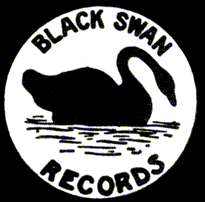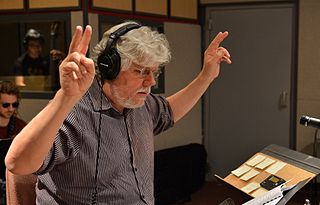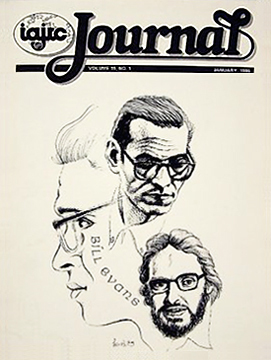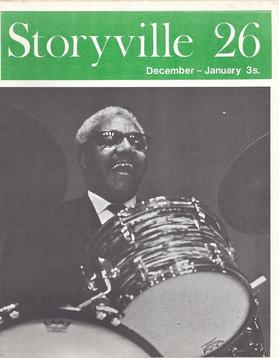Related Research Articles

Black Swan Records was an American jazz and blues record label founded in 1921 in Harlem, New York. It was the first widely distributed label to be owned, operated, and marketed to African Americans. Founded by Harry Pace with W.C. Handy, Black Swan Records was established to give African Americans more creative liberties. Eighteen months earlier, in 1919, the Broome Special Phonograph Records was the earliest label owned and operated by African American George W. Broome in Medford, Massachusetts, featuring Black classical musicians including Harry T. Burleigh and Edward Boatner. Black Swan was revived in the 1990s for CD reissues of its historic jazz and blues recordings.

Stephen Johnson Turre is an American jazz trombonist and a pioneer of using seashells as instruments, a composer, arranger, and educator at the collegiate-conservatory level. For sixty-one years, Turre has been active in jazz, rock, and Latin jazz – in live venues, recording studios, television, and cinema production.
Discography is the study and cataloging of published sound recordings, often by specified artists or within identified music genres. The exact information included varies depending on the type and scope of the discography, but a discography entry for a specific recording will often list such details as the names of the artists involved, the time and place of the recording, the title of the piece performed, release dates, chart positions, and sales figures.
International Association for Jazz Education (IAJE), formerly a not-for-profit corporation based in Manhattan, Kansas, was a volunteer-run organization that, among other things, allocated student scholarships through its approved festivals program. Its annual conference was a gathering point for professional artists as well as jazz enthusiasts. Many considered IAJE to be a foundation of the jazz community, and its many programs to be a cornerstone of jazz education.
The Association for Recorded Sound Collections (ARSC) is a nonprofit organization dedicated to the preservation and study of sound recordings. Established in 1966, members include record collectors, discographers, and audio engineers, together with librarians, curators, archivists, and researchers.
Will Friedwald is an American author and music critic. He has written for newspapers that include the Wall Street Journal, New York Times, Village Voice, Newsday, New York Observer, and New York Sun – and for magazines that include Entertainment Weekly, Oxford American, New York, Mojo, BBC Music Magazine, Stereo Review, Fi, and American Heritage.

Abram Lincoln was an American jazz trombonist. He never led his own recording session, though he recorded copiously as a sideman.
Timeline of jazz education : The initial jazz education movement in North American was much an outgrowth of the music education movement that had been in full swing since the 1920s. Chuck Suber (né Charles Harry Suber; 1921–2015), former editor of Down Beat, averred that the GI Bill following World War II was a key impetus for the jazz education movement in higher education. During the WWII, the U.S. Armed Forces had been the nation's largest employer of musicians – including women musicians. After the War, many of those musicians sought to pursue music as a career, and, with assistance of the GI Bill, found colleges offering curricular jazz. Suber also pointed out that the rise of stage bands in schools was directly proportionate to the decline of big name bands.
John Newton "Johnny" Helms was an American jazz trumpet player, bandleader, and music educator from Columbia, South Carolina. He performed with Chris Potter, Tommy Newsom, Bill Watrous, Red Rodney, Woody Herman, Sam Most, and the Clark Terry Big Band among others. In 1989, he was featured along with Terry and Oscar Peterson as part of Clark Terry and Friends at Town Hall during the JVC Jazz Festival.

The University of North Texas College of Music, based in Denton, is a comprehensive music school among the largest enrollment of any music institution accredited by the National Association of Schools of Music. It developed the first jazz studies program in the nation, and it remains one of the top schools for jazz. As one of thirteen colleges and schools at the University of North Texas, it has been among the largest music institutions of higher learning in North America since the 1940s. North Texas has been a member of the National Association of Schools of Music for 85 years. Since the 1970s, approximately one-third of all North Texas music students have been enrolled at the graduate level. Music at North Texas dates back to the founding of the university in 1890 when Eliza Jane McKissack, its founding director, structured it as a conservatory.

Bill Simon was an American songwriter, musician and music critic. He was a contributor to the music business in the mid-20th century, notably as a jazz commentator for Billboard Magazine and other publications.
Crystalate Manufacturing Company Ltd. was a British plastics and later electronic components manufacturing company that operated in one form or another from August 1901 through August 1990. It is best known for its gramophone records made of moulded Crystalate plastic.

Jarosław "Jarek" Śmietana was a Polish jazz guitarist, composer, and band leader.
Robert Earle Spencer was an American trombonist and leader of a progressive swing big band bearing his name — Earle Spencer and His Orchestra. He formed the band in 1946 and disbanded in 1949. The band recorded for Black & White Records — a label so named by its founder, Les Schreiber, to reflect the races of its recording artists.
Bel-Tone Recording Corporation was a small American independent record label founded in 1944 in Hollywood, California, that recorded and produced artists of the pop, race, and folk genres.

Steve Wiest(néJohn Stephen Wiest; born 1957) is an American trombonist, composer, arranger, big band director, music educator at the collegiate level, jazz clinician, author, and illustrator/cartoonist. From 1981 to 1985, he was a featured trombonist and arranger with the Maynard Ferguson Band. Wiest is in his eleventh year as Associate Professor of Jazz Studies and Commercial Music at the University of Denver Lamont School of Music. He is the Coordinator of the 21st Century Music Initiative at the school. Wiest has been a professor for thirty-six of the forty-four years that he has been a professional trombonist, composer, and arranger. From 2007 to 2014, Wiest was Associate Professor of Music in Jazz Studies at the University of North Texas College of Music and, from March 2009 to August 2014, he was director of the One O'Clock Lab Band and coordinator of the Lab Band program. At North Texas, Wiest also taught conducting, trombone, and oversaw The U-Tubes — the College of Music's jazz trombone band. Wiest is a three-time Grammy nominee — individually in 2008 for Best instrumental Arrangement and in 2010 for Best Instrumental Composition, and collaboratively in 2010 for Best Large Jazz Ensemble Album, which he directed. As of 2013, Wiest has in excess of 58 arrangements and compositions to his credit, which include 10 original compositions from his current project (see 2013–2014 project below).
Walter Bruyninckx is a Belgian jazz discographer, musicologist, jazz historian, author, and journalist.

The IAJRC Journal is an American quarterly magazine published by the International Association of Jazz Record Collectors. The journal was established in 1968, 4 years after the association was founded in Pittsburgh. The first issue was published during the first quarter of 1968. It covers the history of jazz — which includes the history of jazz criticism and jazz discography.

Storyville was a British jazz magazine that ran from 1965 to 2003 featuring jazz history, discography, and record trading. It was published six times a year from October 1965 to December 1986, then quarterly from March 1987 to June 1995, then four biennial volumes were published until 2003.
Tim "Mit" Schuller(néFredric Thomas Schuller; Salem, Ohio – 29 February 2012, Dallas, Texas) was an American, Dallas–Fort Worth-based music critic, who, for 37 years – from 1975 until his death – chronicled living blues and jazz musicians, mostly from Texas.
References
- ↑ "A Survey of Record Collectors' Societies," by Tim Brooks, Association for Recorded Sound Collections Journal , Vol. 16, No. 3, 1983, pps. 17–37; ISSN 0004-5438
- ↑ Goldmine Jazz: Album Price Guide by Tim Neely, Krause Publications (2004), pg. 10; OCLC 56759163
- ↑ Encyclopedia of Recorded Sound, (vol. 1 of 2; A–L), Frank Hoffman (ed.), Routledge (2005), pg. 422; OCLC 53903601
- ↑ "Only in America: The Unique Status of Sound Recordings under U.S. Copyright Law and How It Threatens Our Audio Heritage," by Tim Brooks, American Music, University of Illinois Press, Vol. 27, No. 2, Summer 2009, pg. 134; ISSN 1945-2349